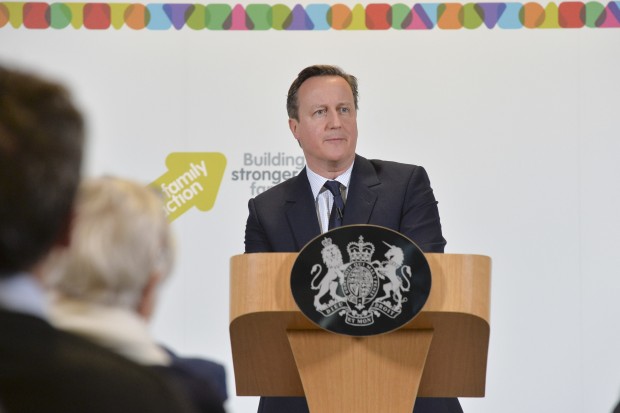Sam Thomas (@iamsamthomas)
On Monday David Cameron made a major speech on social policy, setting out an ambitious agenda for his government’s forthcoming ‘life chances’ strategy.

Falling on the same day as the sad news of David Bowie’s death, it received muted media coverage. Press reports focused on welcome mental health and family policies, including £247 million in funding for liaison services in A&E departments. Mind’s CEO Paul Farmer, watching the speech, remarked it was the first on mental health made by a serving PM – a significant landmark (read Mind’s response).
The speech also featured a long section on drug and alcohol problems, in which the PM addressed both the stigma that exists around substance misuse, and the complexity of addiction:
“Let’s be honest: when we hear the words ‘drug addict’ or ‘alcoholic’, there is still such a stigma that comes attached. Still a view that addiction is simply a question of will, a sense that it’s simply about self-control, a feeling that it’s somehow shameful if we admit to having a problem. We see it as weakness. It isn’t. Seeking help is strength.”
Perhaps just as importantly, he emphasised that these problems don’t exist in isolation:
“We need a more social approach. One where we develop a richer picture of how social problems combine, of how they reinforce each other, how they can manifest themselves throughout someone’s life and how the opportunity gap gets generated as a result.”
To see these messages in a major speech from a Prime Minister is very encouraging. The life chances strategy (which is still under development) could have a significant impact on people with multiple needs. However, to do so, it will need to consider two things in more detail:
Firstly, there’s a gap between the bold ideas the speech develops – that substance misuse, mental health problems, family breakdown and other issues interact and reinforce each other – and the more single-issue policy solutions announced yesterday, which address those problems separately.
For instance, there’s a promised £30 million social investment fund to support innovation in drug and alcohol treatment. This funding is welcome, but given that over half the people receiving treatment for a drug or alcohol problem also have problems with homelessness or offending, and a majority experience mental ill health, treatment must be linked to action on these other issues. A starting point would be to ensure this funding was targeted at supporting people whose substance misuse problems are compounded by other challenges.
Secondly, the background assumptions about poverty and its sources are controversial. The PM’s conviction – strongly expressed in the speech – is that social issues such as substance misuse and family breakdown lead to and reinforce poverty. However, this argument is hard to sustain in the face of the evidence, not least from the Hard Edges study on severe and multiple disadvantage, that poverty is primarily a cause, not a symptom of social problems.
With two Select Committees currently inviting evidence to inform the Life Chances strategy there will be plenty of opportunities to engage with the ideas expressed in the speech, and to make the case for a more cohesive approach to tackling them.
One Conservative commentator offers that “this may be the Prime Minister’s last major intervention on social justice” before the European referendum dominates his government’s agenda. If that proves the case, it’s all the more important that some of the promising ideas here are followed through.
Sam leads policy work across the MEAM coalition, and manages Voices from the Frontline.
